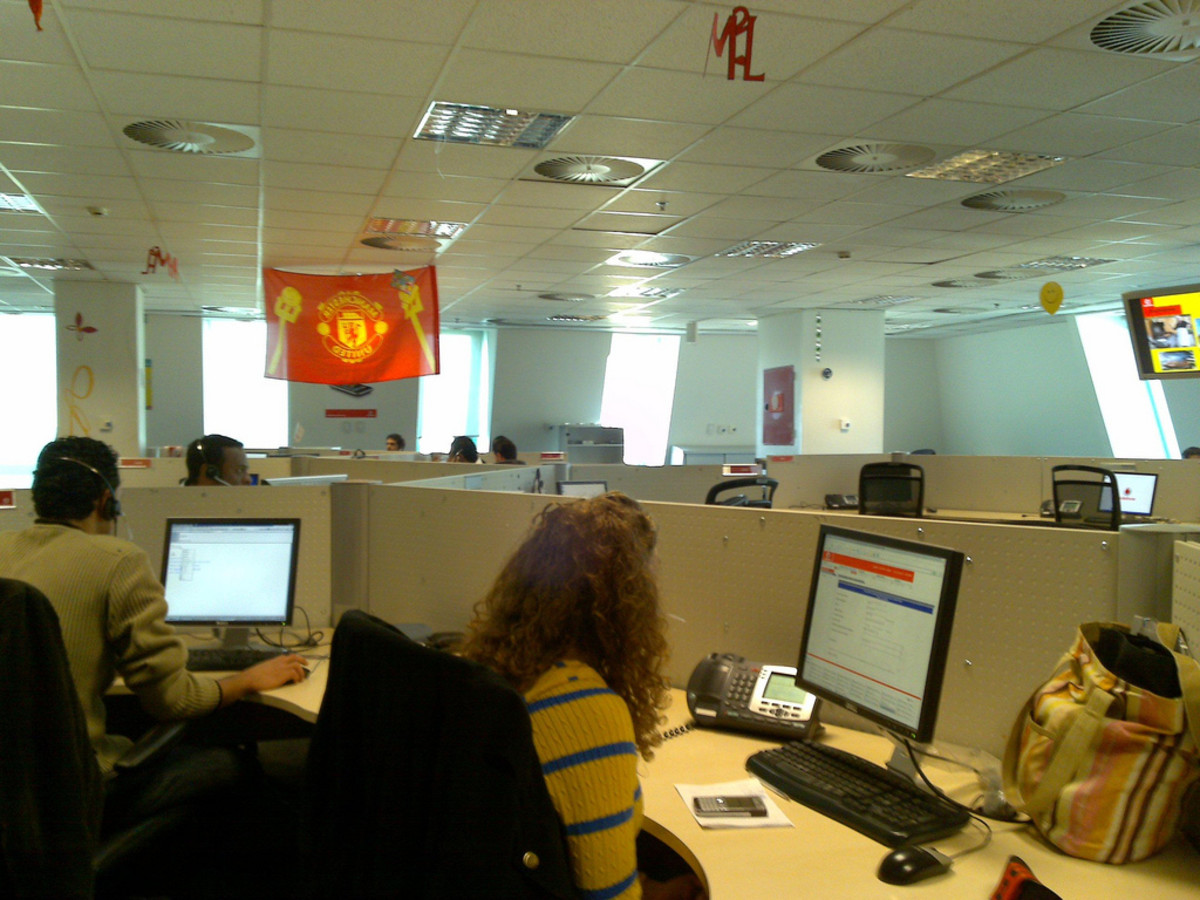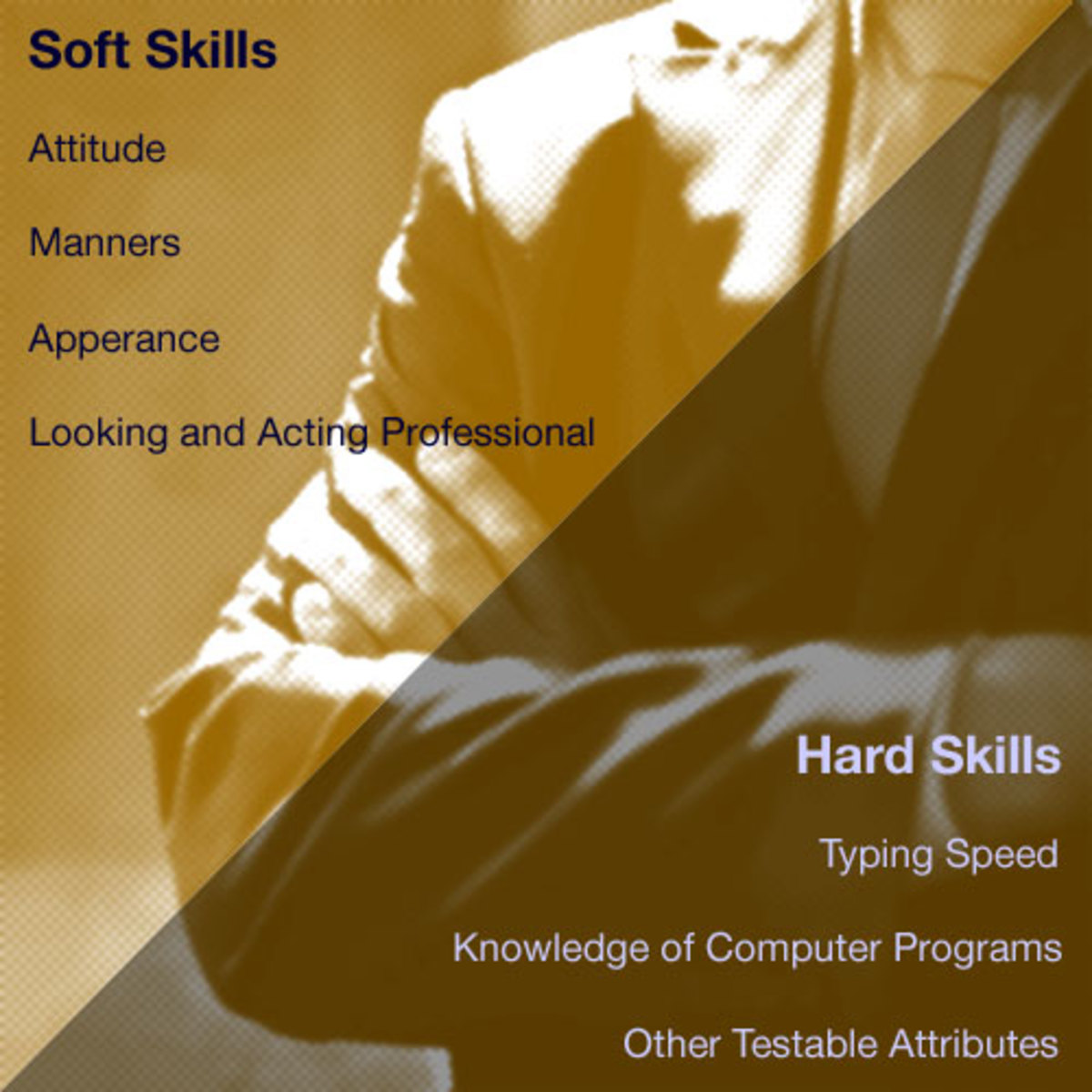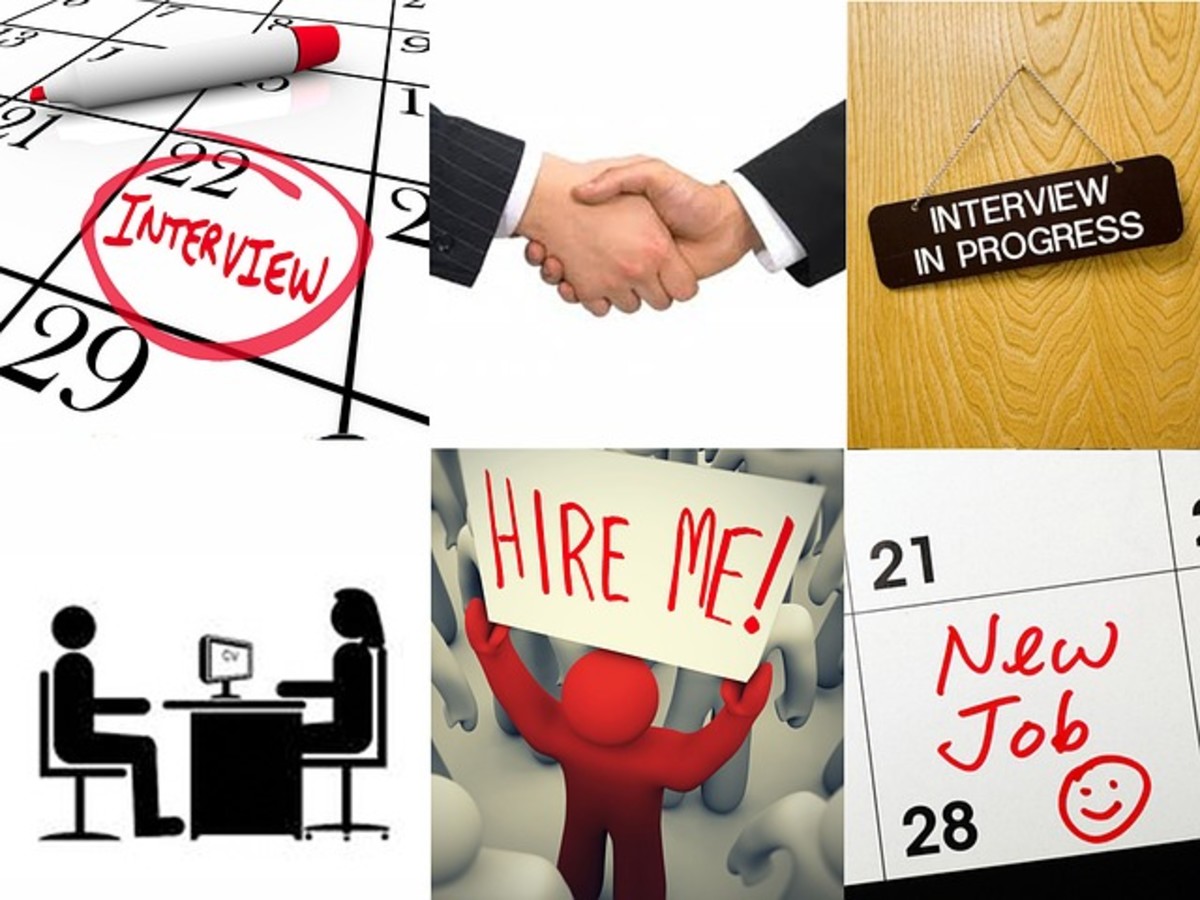- HubPages»
- Business and Employment»
- Employment & Jobs»
- Interviewing for a Job
99 Typical Behavioral Interview Questions
When you go to an interview, always remember that you are special, one of a kind, and unique - just like everyone else.

One way to put yourself at the head of the pack when interviewing is to practice beforehand your answers to behavioral interviewing questions. Behavioral Interviewing has become popular with interviewers because it is believed that the most effective predictor of future behavior is a candidate’s past behavior. You will know you are in a behavioral interview when you hear questions about what you did do rather than what you would do.
This list of 99 behavioral interview questions contains the 99 questions that I have found most useful during a career of interviewing managers and manager-wannabes. (The original list contains 346 questions compiled by the University of Kansas Department of Administration). I have put this list together to help job seekers become familiar with the types of questions they may be asked, and to help interviewers when they are preparing to interview job applicants – and don’t plan to ask them 346 questions.
If you are a candidate who is asked behavioral interview questions, you should be aware of the 3-step process I refer to as SATYR that you may use to frame your answers most effectively:
a. You will be asked about a Situation
b. Respond with the Action Taken
c. Conclude with Your Result.
Analytical Thinking. > Tell me about a time when you had to analyze information and make a recommendation. What was the reasoning behind your decision? And what was the end result? > Describe a project or idea that was implemented primarily because of your efforts. What was your role? What was the outcome?
> Tell me about a project or situation which best demonstrates your analytical abilities.
Assertiveness. > In your past jobs when you disagreed with your manager, what did you do? > Describe a time when you made a suggestion to improve the work in your department. What did you say. What was the result? > Tell me about a situation when you had to be assertive in order to get a point across that was important to you.
“The most important single ingredient in the formula of success is knowing how to get along with people.”– Theodore Roosevelt
Communication Skills.
> Tell me about a time when you believe you did not communicate effectively. How did you correct the situation?
> Describe a time when you were able to effectively communicate a difficult or unpleasant idea to a superior.
> What would your colleagues or staff say is most frustrating about your communications?
> Tell me about a recent successful experience in making a speech or presentation. How did you prepare? What obstacles did you face? How did you handle them?
> Give an example of a time when you made a mistake because you did not listen well to what someone had to say.
> What have you done to improve your verbal communication skills?
“It is better to have people think you're a fool, than to open your mouth and remove all doubt.”– Mark Twain
Conflict Resolution.
> Can you give me an example of how you typically resolved a conflict in your previous jobs? > Tell me about a time when you were forced to make an unpopular decision..
> Have you ever had to resolve a conflict between two people on the job? What was the situation and what did you do?
“Tact is being able to raise your eyebrows instead of your voice.”
Creativity / Innovation. > Tell me about a problem that you solved in a unique or unusual way. What was the outcome? > Tell me about a time you thought “outside of the box.” What was the result? > What new or unusual ideas have you developed on your job? What was the result?
Customer Orientation. > How do you establish rapport with a customer? Give me an example.
> Tell me about a time when you had to deal with an irate customer. What was the problem and what was the outcome?
Decision Making. > What was the most difficult decision you had to make in previous jobs? What made it difficult? > What is the riskiest decision you have made? What was the situation? What happened? > Tell me about a time when you had to defend a decision you made even though other important people were opposed to your decision.
Delegation. > What was the biggest mistake you have made when delegating work? The biggest success? > Do you consider yourself a macro or micro manager? Why? > How do you decide when to delegate work?
“When in charge, ponder. When in trouble, delegate. When in doubt, mumble/” – James Boren.
Detail-oriented. > Tell me about a difficult experience you have had in working with details. > Which do you prefer – working with the "big picture" or the "details" of a situation? Give me an example of an experience that illustrates your preference.
Flexibility. > Give me an example of a time that you had to adapt to a difficult situation at work. > Tell me what you have done when faced with an obstacle to an important project?
Initiative. > Tell me about the projects that you initiated on your own in your previous jobs? > Describe a situation when you demonstrated initiative and took action without waiting for direction. What was the outcome?
> Give me two examples of your accomplishments in previous jobs that demonstrate your willingness to work hard.
Interpersonal Skills. > Describe an unpopular work decision you made and what the result was.
> Tell me about the most difficult or frustrating individual you have ever worked with, and how you managed to work with him or her.
> Tell me about a politically complex work situation you were involved in. What happened?
Integrity. > At times we are confronted by dishonesty in the workplace. Tell me about such an occurrence and how you handled it.
> Tell me about a specific time when you had to handle a tough problem which challenged fairness or ethnical issues.
Judgment. > If you were interviewing applicants for this position, what competencies would you be looking for in the applicants?
> Give me an example of when you were responsible for an error or mistake. What was the outcome? What, if anything, would you do differently? > Give a specific example of a time when you used good judgment and logic to solve a problem.
Leadership. > Sometimes we work without close supervision or support to get the job done. Tell me about a time when you found yourself in such a situation and the results.
> Tell me about a time you had to make a key decision on the spur of the moment? Why? And what was the result?
> What was the toughest group that you have had to get cooperation from? Describe how you handled it. What was the outcome?
“The formula for success is rise early, work hard, strike oil.”- J. Paul Getty
Leading Change.
> Tell me about a time you had to introduce a new idea or procedure to people on the job? How did you do it?
> Describe a major change that occurred in a job that you held. How did you adapt to this change?
As an interviewer, I once asked an applicant: “Tell me how you have handled change in the past.” The applicant actually said: “It wasn/t a problem unless I ran out of clean underwear.”
Motivation. > How did you get subordinates to produce at a high level? Give an example.
> How did you deal with people whose work exceeded your expectations?
> Have you ever managed a subordinate whose performance was consistently marginal? What did you do? > What kinds of things at work really got you excited?
> Give an example of a time when you went above and beyond the call of duty.
Negotiating. > Tell me about the most challenging negotiations in which you were involved in previous jobs. > For you, what was the most difficult part of negotiating with someone? > Tell me about a time when you were able to resolve a difficult situation through negotiation and compromise.
“He who has learned to disagree without being disagreeable has discovered the most valuable secret of a diplomat.”- Robert Estabrook
Performance management. > How often did you discuss a subordinate's performance with him/her? Give me an example. > Give an example of how you handled the need for constructive criticism with a subordinate or peer.
> Tell me about a difficult performance review.
Persuasiveness. > Describe a situation in which you were able to use persuasion to successfully convince someone to see things your way.
> Tell me about a time when you had difficulty persuading someone to your point of view. What did you do? > Tell me about a time when you were able to successfully influence another person.
Positive attitude. > Describe a situation when you were able to have a positive influence on the actions of others. > When did you give positive feedback to people? Tell me about the last time you did. > It is important to maintain a positive attitude at work when you have other things on your mind. Give a specific example of when you were able to do that. > Tell me about a time when your supervisor criticized your work. How did you respond?
Presentation
> Tell me about the most effective presentation you have made. What was the topic? What made it difficult? How did you handle it?
> What kinds of oral presentations have you made? How did you prepare for them? What challenges did you have?
Problem Resolution. > Tell me about a time when you identified a potential problem and resolved the situation before it became serious. > Some problems require developing a unique approach. Tell me about a time when you were able to develop a different problem-solving approach. > Have you ever been caught unaware by a problem or obstacles that you had not foreseen? What happened?
Project Management. > Give me an example of a time when you influenced the outcome of a project by taking a leadership role.
> Tell me how you kept those involved informed of the progress of a project.
Sales. > Tell me about your most difficult sales experience. > How did you go about making cold calls? > What have you done to improve your sales volume in previous positions?
Scheduling / Time Management. > Describe the most difficult scheduling problem you have faced. > Tell me about a time when you were particularly effective at prioritizing tasks and completing a project on schedule.
> How did you decide what received top priority when scheduling your time?
> What did you do when your schedule was suddenly interrupted? Give me an example.
> Describe a situation that required you to do a number of things at the same time. How did you handle it? What was the result?
Selecting People. > What was your biggest mistake in hiring someone? What happened? How did you deal with the situation?
> What was your biggest success in hiring someone?
Question. “How many people work here?” Answer. “About half of them!”
Self Development. > Tell me about something new you learned in your previous position. > Tell me how you have kept your job knowledge current with on-going changes in the industry.
Strategic Planning. > Did you have a strategic plan? How was it developed? How did you communicate it to the rest of your staff? > Describe what methods you have used to identify a vision for your department or organization. > Tell me about a time when you organized or planned an event that was very successful.
Stress Management. > What kind of events caused you the most stress on the job?
> What was the single most stressful situation you have faced? How did you deal with it?
Team Player. > Have you ever been a project/team leader? Give examples of problems you experienced and how you reacted.
> Some people work best as part of a team - others prefer the role of individual contributor. How would you describe yourself? Give an example of a situation where you felt most effective. > Tell me about the most difficult situations that you have experienced when leading a team, or as a team member. > When working on a team project, have you ever had an experience where there was strong disagreement among team members? What did you do?
Training and Development. >Tell me about a training program that you have developed or enhanced. > What have you done to develop the skills of your staff? > How did you coach an employee to work on/complete a new assignment?
Miscellaneous.
> What have you done to further your knowledge and understanding about diversity? How have you demonstrated your learning? > How would you define "success" for someone in your chosen career?
> What was the most useful criticism you ever received? > On many occasions, managers have to make tough decisions. What was the most difficult one you have had to make?
Judge a person by their questions, rather than their answers.” – Voltaire. Usually true, but when interviewing, it’s your answers that the interviewer wants to hear. Save your questions for the end of the interview
© Copyright BJ Rakow 2010, 2011. All rights reserved. Author, "Much of What You Know about Job Search Just Ain't So."
An enlightening book about job search with the facts about interviewing, negotiating, networking, and creating a powerful resume.









